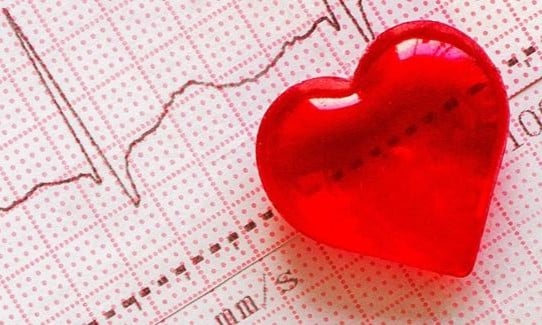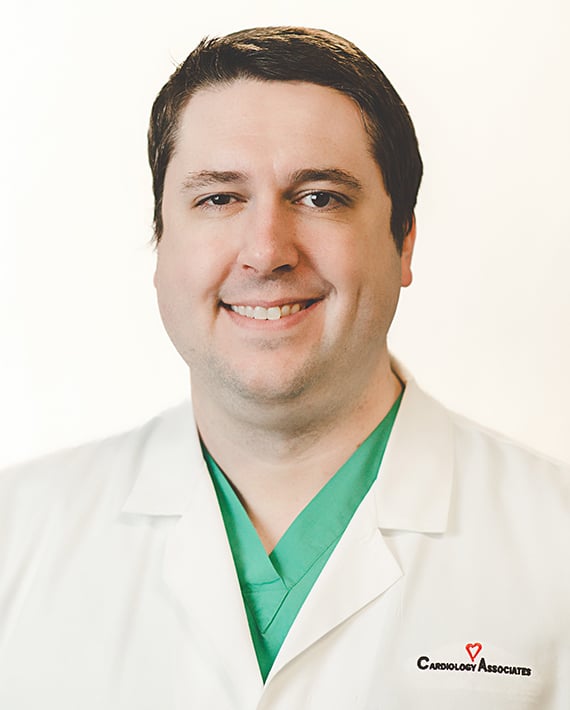



Summary
Chest pain could be your heart’s cry for help. Don’t ignore it.
As a cardiologist serving the people of north Mississippi, I’ve seen firsthand how confusing and frightening chest pain can be.
One of the most common reasons patients come to see me—or rush to the Emergency Room—is chest discomfort.
While not all chest pain is related to the heart, it’s crucial to understand the warning signs of cardiovascular chest pain, also known as angina, because it could signal a life-threatening condition such as a heart attack.
Causes of Chest Pain
Cardiovascular chest pain typically occurs when the heart muscle doesn’t get enough oxygen-rich blood. This may be caused by narrowed or blocked coronary arteries, a condition known as coronary artery disease (CAD).
When the heart is under stress—such as during exercise, emotional upset or even heavy meals—it needs more oxygen. If the arteries can’t deliver it, the result is chest pain.
How it Feels
Unlike muscle or digestive pain, cardiovascular chest pain often feels like pressure, tightness or a squeezing sensation in the center or left side of the chest. Some patients describe it as “an elephant sitting on my chest.”
The pain may also radiate to the arms, neck, jaw, shoulder or back. It can last a few minutes and may improve with rest, especially in cases of stable angina.
However, if it occurs suddenly, gets worse over time or doesn’t go away with rest, it could indicate an active heart attack—a true emergency.
At Risk
Here in north Mississippi, we face some of the highest rates of heart disease in the nation.
Risk factors like high blood pressure, diabetes, smoking, obesity and lack of exercise are unfortunately common. That means it’s especially important for our community to know when chest pain could be a warning sign.
Atypical Symptoms
One challenge is that not all cardiovascular events follow the textbook symptoms. In women, older adults and people with diabetes, chest pain may be mild or absent. Instead, they might feel shortness of breath, nausea, extreme fatigue or lightheadedness.
That’s why I always tell patients to trust their instincts. If something doesn’t feel right—especially if you have risk factors for heart disease—get checked out.
Act Quickly
Time is critical. If you or a loved one is experiencing symptoms that could indicate a heart attack, call 911 immediately. Don’t drive yourself. Emergency services can begin life-saving care on the way to the hospital.
An Ounce of Prevention
Preventing heart disease is just as important as recognizing it. Eating a heart-healthy diet, getting regular physical activity, managing stress, avoiding tobacco and controlling conditions like diabetes and high blood pressure can dramatically reduce your risk.
Our team is committed to educating and empowering patients. Understanding what cardiovascular chest pain feels like—and what to do about it—can literally save your life or the life of someone you love.
When in doubt, get it checked. Your heart is too important to ignore.


Jonathan Blossom, MD
If you're over 35, schedule a heart screening to identify your risk of heart disease. Request an appointment online or call 1-800-THE DESK (1-800-843-3375).

Subscribe to Our Newsletter
Like this content and want to get more? Sign up for True North, the health and wellness newsletter from North Mississippi Health Services!

Subscribe to Our Newsletter
Like this content and want to get more? Sign up for True North, the health and wellness newsletter from North Mississippi Health Services!

Nurse Link®
Not sure if you need Urgent Care or the ER? Call 1-800-882-6274 anytime to speak directly to a registered nurse and get immediate answers. Using computerized medical protocols, nurses direct callers to the most appropriate treatment. Our nurses are available 24 hours per day, seven days per week.